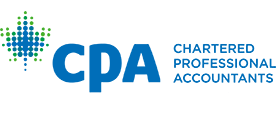So you’ve decided to take the plunge and become your own boss, but have you given much thought to your corporate structure? In simple English: are you going to trade as a freelancer or trade as a registered business? The options can be daunting, but if you can understand your options in laymen’s terms, it’ll be easier to know which decision is right for you.
As a brand-new start-up, there are two main options you can follow: registering a company or trading under your personal name (freelancing).
Both are workable options, and there is no one right answer, so here are some key aspects to take into consideration.
Tax benefits
Like death, there’s no escaping tax. But there are ways to lessen your tax burden by structuring your tax affairs properly.
Registered companies are taxed at a flat rate of 28%. Now that may seem like a lot, but when you consider that individual tax tables reach 45% if you are in the highest tax bracket, 28% doesn’t look so bad. However, don’t forget that extracting money from your company will either be taxed based the tax tables if paid as a salary or taxed at 20% if paid as a dividend. It is advisable to pay yourself a salary instead of dividends if you earn less than R1.5 million in a tax year – don’t forget you will need to still pay monthly PAYE on your salary.
If you have opted to register a business and be part of the VAT ecosystem, there are a few options to consider:
Turnover tax is perfect for micro businesses, which have a turnover of R1 million or less. The simplified system replaces the tax system, making the business’s tax obligations rather straight forward. By replacing Income Tax, VAT, Provisional Tax, Capital Gains Tax and Dividends Tax, this system allows micro businesses to reduce its tax burden but will be outside the VAT system.
If you have already registered your business, you might want to see if you qualify for a Small Business Corporation (SBC). Reregistering your business as a SBC can reduce your tax rates and assist in receiving additional tax incentives. You can remain in the VAT system as a SBC, unlike with companies that qualify for Turnover tax.
Risk and reputation
When you are trading under your own name, you are more at risk. If you are trading as a company, your personal assets are protected against company debts. This means that you won’t be kicked out onto the street if something goes wrong with your business.
Understandably, customers are wary when it comes to working with someone they’ve never worked with before, especially with so many scams and fly-by-night companies out there. They will be far more assured and ready to do business with you if they can see that your company is properly registered.
The cost of registering
Registering a business does come with a cost and a bit of admin in terms of adhering to rules and regulations, but if you weigh it up against the tax benefits and legal protection mentioned above, you should be walking away with more pros than cons.
It is a possibility to start your company freelancing under your own name and then register your company as a separate entity at a later stage. This would be a good idea if you just want to give a few things a try to see what the initial reaction is to your new business. Not every business is an instant success, so it is advisable to only take the registered step if you are serious about your business and plan to grow.
Need help deciding which route to take? Contact Outsourced Finance.



